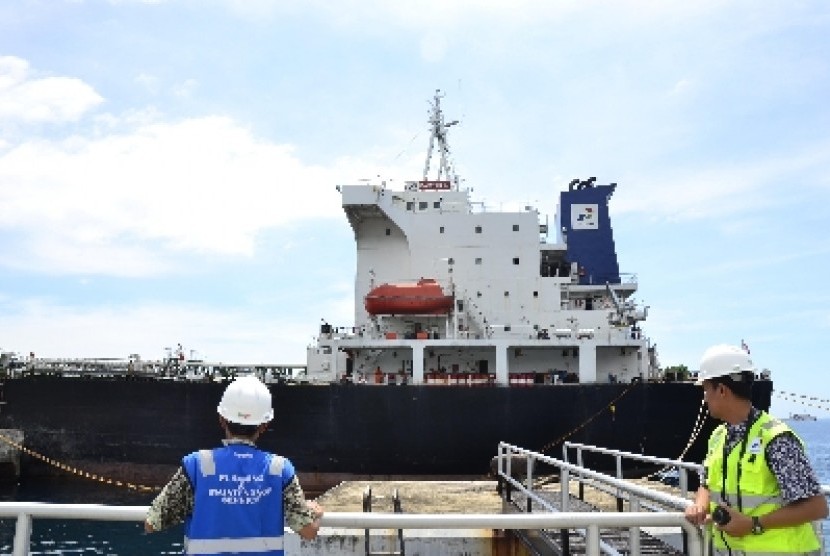REPUBLIKA.CO.ID, JAKARTA -- Indonesia's State-owned oil and gas company, Pertamina, has been able to become self-reliant in diesel oil and has the potential to increase the country's foreign exchange earnings through diesel oil exports.
"However, the country's diesel oil surplus is temporary in nature as there is a possibility of the need at home increasing," Executive Director of ReforMiner Institute, Komaidi Notonegoro, said in Jakarta on Tuesday.
He noted that the success of Pertamina in taking diesel oil production to a surplus level needed to be appreciated. So far, the main consumers of diesel oil have been the industrial and transportation sectors. The development of gas infrastructure, both for industry and transportation, has the potential to reduce demand for diesel oil.
"The infrastructure development will proceed in stages. Regions which have not yet been covered by gas distribution networks will continue to use diesel oil since its distribution is more flexible than that of gas," Komaidi added.
He wanted the government to provide a guarantee that all diesel oil that has been produced would be absorbed, either by the domestic market or through exports.
Even the government can buy it and store it as a national reserve for fuel oil since the current price level is low.
"It can be kept as stock or for export. Almost all countries in Asia are potential importers. China, South Korea, Japan and India are countries that can be given priority," he remarked.
Legislator of Commission VII on energy affairs of the House of Representatives (DPR), Inas Nasrullah Zubair, said Pertamina must be able to maximize the distribution of its diesel oil production through exports.
Pertamina can order PT Patra Niaga, one of its subsidiaries, to market diesel oil production surplus. "The government should also support it by issuing a regulation on import restriction by the private sector and oblige them to absorb Pertamina's diesel oil production," Inas said.
PT Pertamina recorded self-reliance in diesel oil production following the operation of Residual Fluid Catalytic Cracker (RFCC) in Cilacap, Central Java and the Trans Pacific Petroleum Indotama's (TPPI's) refinery plant in Tuban, East Java, last May.
In line with the operation of RFCC Cilacap and the TPPI operations, Pertamina has stopped importing diesel oil. By 2023, it will be self-reliant in all types of fuels because refinery plants' production will reach two million barrels per day.
The RFCC Unit processes feed stock in the form of low sulfur Waxy Residue (LSWR) amounting to 62 thousand barrels per day (bpd) into highly valuable product, namely HOMC, amounting to 37 thousand bpd. Much of this HOMC is further processed into premium gasoline.
Thus, premium production from the Cilacap refinery plant will increase from 61 thousand bpd to 91 thousand bpd. The TPPI refinery plant, meanwhile, processes 100 thousand bpd of condensate and naphta.
This raw material processing yields several types of products, such as liquefied petroleum gas (LPG), diesel oil, fuel oil, premium and HOMC. TPPI could produce about 61 thousand bpd of premium, 10 thousand bpd of HOMC and 11,500 bpd of diesel oil.
The Energy and Mineral Resources Ministry predicted that it could save Rp27 trillion from diesel oil imports in 2016.


